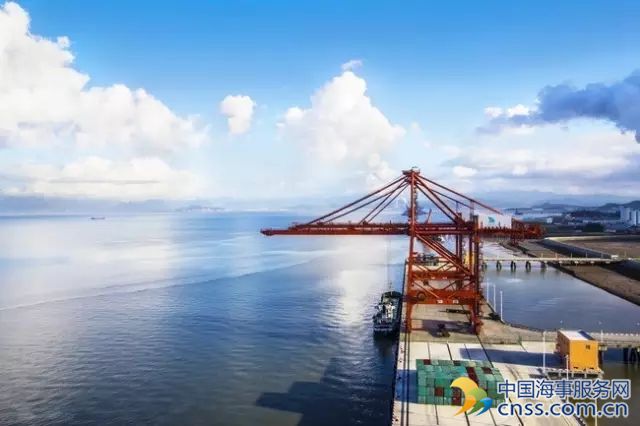As Hanjin Foundered, Its Former Chairwoman Abandoned Shares

Hanjin Shipping Co. was in rough seas this spring, battered by the downturn in global trade and by costly ship leases it had negotiated in better times.
Choi Eun-young, the company’s former chairwoman who had stepped down in 2014, decided to take action: She sold all her stock in Hanjin.
Regulatory filings show that between April 8 and April 20, Ms. Choi and her two adult daughters sold 967,927 shares valued at 3 billion won ($2.7 million).
The move saved the Choi family at least $1 million in losses in the months that followed as Hanjin’s fortunes sank and investors headed for the lifeboats, authorities say.
But it also came at a price: Korean state prosecutors are now investigating the trades as possible insider trading, and they have fueled fresh criticism of South Korea’s family-run conglomerates, known as chaebols, that are the dominating force in its business culture.
The April stock sale triggered a probe by South Korea’s Financial Services Commission, which later handed over the case to the Seoul Southern District Prosecutors’ Office. Investigators want to know if Ms. Choi had inside knowledge when she and daughters Cho Yoo-kyung, 30, and Cho Yoo-hong, 28, liquidated their shares.
“As Ms. Choi and her family are suspected of having sold their Hanjin stocks by using undisclosed information to avoid losses, it’s natural for the authorities to look into whether their selling violated laws,” said a director at the Financial Services Commission.
Ms. Choi did not respond to requests for interviews made through Hanjin Shipping, a unit of Hanjin Group, and Eusu Holdings Co., a Hanjin Shipping spinoff she currently chairs. Representatives of Hanjin and Eusu declined to comment on her stock trades.
Ms. Choi publicly defended her trades to the Korean National Assembly, which conducted a hearing Sept. 9 in the wake of Hanjin’s Aug. 31 bankruptcy that left dozens of ships stranded at sea as ports and dockworkers refused to offload their containers, fearing they would not be paid dock fees and wages.
Ms. Choi told lawmakers she sold the stock to pay off personal debt, and was not aware the company was headed for bankruptcy—believing instead that it would be bailed out by its creditors.
Shedding tears, the 54-year-old Ms. Choi expressed remorse for Hanjin’s struggles but said she was never prepared to serve at its helm, having been named to the job following the death of her husband.
“I had no expertise as I had been stuck home as a housewife,” Ms. Choi, who ran the company for seven years, said.
Hanjin rival Hyundai Merchant Marine Co., for example, until recently was run by Hyun Jeong-eun, a homemaker before she gained the top post following the death of her husband.
Most chaebols were formed during the country’s push to rebuild after World War II. But as founders passed on ownership to the next generation, problems have sometimes followed.
Hanjin Group, the parent of the shipping company, was spotlighted in 2014 when Cho Hyun-ah, a daughter of its chairman and a vice president of Korean Air Lines Co., threw a tantrum on an aircraft over how macadamia nuts were served to her before takeoff.
She ordered the plane be returned to the gate, and was given a suspended prison sentence for assaulting a crew member in a case that became known as the “nut rage.” Both Ms. Cho and her father Cho Yang-ho apologized for “causing a stir” and asked for a pardon “if anyone was hurt by her behavior.”
Ms. Choi is the sister-in-law of Cho Yang-ho, chairman of the Hanjin Group, and her current company, Eusu Holdings, a ship management and information-technology company, has close business relationships with Hanjin.
Some of Hanjin’s troubles were public knowledge when Ms. Choi sold her shares. On March 24, Hanjin said it was considering selling some overseas terminals and its London office building to improve its finances.
On April 25, just a few days after Ms. Choi and her daughters finished their stock sale, Hanjin Shipping applied for a creditor-led debt restructuring. That was later rejected and the company filed for bankruptcy Aug. 31.
While Hanjin’s troubles can be traced to the global financial crisis in 2008 and a more recent downturn in trade, some analysts say some of the blame falls on costly long-term ship leases Ms. Choi agreed to when global shipping was still booming.
Nearly two-thirds of Hanjin’s container fleet of 97 vessels are leased, and the latest cargo crisis is costing the cash-strapped company at least $2 million a day in fees to those owners, according to brokers and a Seoul court judge handling Hanjin Shipping’s bankruptcy.
This week, a South Korean bankruptcy judge ordered Hanjin to return its leased ships and sell as many of its own ships as possible, a move industry experts say makes it likely that the carrier will either be liquidated or turned into a much smaller company, according to brokers and a Seoul court judge handling Hanjin Shipping’s bankruptcy.
Source: Wall Street Journal
HEADLINES
- Do shipping markets want Biden or Trump for the win?
- All 18 crew safe after fire on Japanese-owned tanker off Singapore
- Singapore launching $44m co-investment initiative for maritime tech start-ups
- Cosco debuts Global Shipping Industry Chain Cooperation Initiative
- US warns of more shipping sanctions
- China continues seaport consolidation as Dalian offer goes unconditional